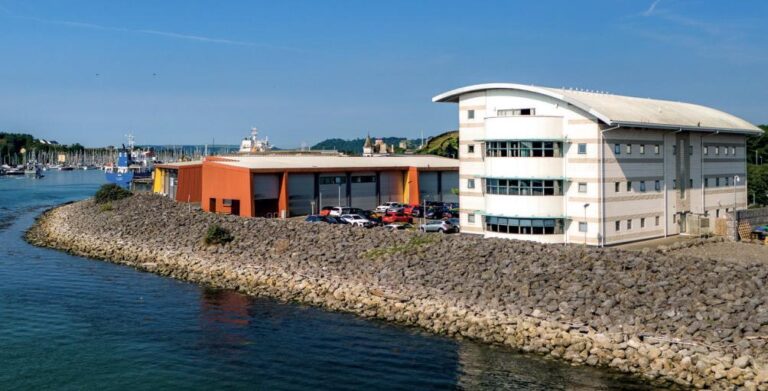Exeter commercial property update: Our commercial agency team provide regular updates on the property, development and investment markets around the South West. Zach Maiden gives an Exeter commercial property update.
Exeter commercial property update
Over the course of 2023 we have experienced a turbulent time from market forces as a result of the ill-fated ‘Mini-Budget’ of 2022, Cost of Living Crisis, hike in interest rate and inflation volatility which have all had an impact in our commercial market. However out of the market doom and gloom, there are opportunities and we are still far less impacted than other areas of the country and our shielded location has actually outperformed market expectations.
Office Market: Exeter area
The office market has certainly seen the greatest change out of all sectors and this is seemingly obvious due to current remote working and preferred flexible working conditions. With a lack of labour and an employee led market we are seeing a shift in power to the workers and they now command higher levels of expectation which employers now need to adhere to in order to attract the highest calibre of employee. With this mind working environments are now key to how business operate and attract staff with only the best office space likely to find a new occupier with obsolete accommodation likely to be converted to residential in the future.
One major issue here is the cost of refurbishment without a tenant lined up to take the space. This catch-22 situation is causing a stagnant market with landlords and tenants looking to see who blinks first. However it is not good for accommodation to remain on the market for a prolonged amount of time and with high holding costs (insurance, rates, service charge etc.) starting to bite we expect more problems to persist in this sector in the near future.
However there seems to be a decent amount of interest from owner occupiers no longer wishing to rent off landlords due to uncertainty in their office requirements and the mindset that if they are going to spend money on rent it may as well be on an office owned by the business. Therefore any investment in the building will be run through the business as a real tangible asset that will likely add value to the firm in the future.
Some positivity is that the West Country does have a lack of quality office accommodation and with the likelihood that much obsolete accommodation will be converted in the future we don’t expect affluent cities like Exeter to be impacted too severely in the future but only time will tell in this regard as planning is not a certainty at this point.
Industrial Market: Exeter and area
One of our strongest performers over the past year has of course been the industrial sector and this is a running trend that has been consistent over the past few years. Exeter has performed very well and with the new development of Skypark Phase 2 on the horizon we expect our city to set the pace which will provide opportunities in other locations such as Cullompton, Wellington, Barnstaple and other regional towns where rents and capital value will look affordable in comparison.
However there has been much talk about the success of small industrial (particularly freehold) but with the rise of build costs this is to be expected. There has certainly been a cooling in the rental sector due to the rise of occupiers costs in this market. Business rates, energy costs and increased supply on the market has caused a slight hesitation from occupiers not only looking of the best space but also mindful of the occupation costs in the future.
This also includes EPC’s and ESG considerations although with recent government delays in this field it remains to been seen how much of an impact this will have in the short term. What we will expect is for landlords (and maybe occupiers) to be forced to invest in their properties in order to comply with changing EPC governance in the future.
Although we have been experiencing record rents in this sector (from small industrial to larger trade operators fighting off competition) there is a genuine concern in the rise of build costs, interest rates and EPC’s which has had an impact on the investment market. Pricing has been challenging and we will be monitoring the market in this regard until a correction has been embedded into the marketplace. However investors still have a preference for this asset class with strong values in this sector due to high occupation levels, reversionary rents and long term income prospects.
Retail Market: Exeter
The South West retail market is not all doom and gloom as you might believe from the mainstream media. In reality, the sheltered and relatively affluent nature of the west country has brought about keen interest in retail premises from numerous applicant types chasing opportunity. This is exasperated by the demise of large multiple retailers , the lack of innovation and poor consumer experience in their offerings which is seeing high failure rates in well known national brands. We would argue that this is down to their lack of understanding of their customer base buying habits.
By contrast, we are seeing good quality local and regional occupiers looking at retail space in a different way whilst continuing to utilise online shopfronts. Big winners in this regard remain the trendy and high-end independents who are strategizing their marketing through the use of social media and other marketing tools to great effect. Such businesses are bucking the trend and we are seeing larger more mainstream retailers losing out to brands who are well in tune with their audience and utilising branding targeting the younger market.
Affordability remains a key factor in retail occupation rates and we are now seeing small and affordable units (£25,000pa in regional towns, £50,000 pa in Exeter) being snapped up by opportunist occupiers to the detriment of the big nationals in larger, prime locations. Many of our high streets are likely to see a migration of retail accommodation on the fringes into residential space but we envisage this to have actually have a good impact on our in-town offices and retail space in the longer term.
The sector is undergoing a huge change but we must remember that retail is intrinsically linked to the industrial market and changing consumer habits (ecommerce for example) is simply an evolution of traditional retailing and the winners here are businesses that understand this transition in detail.




